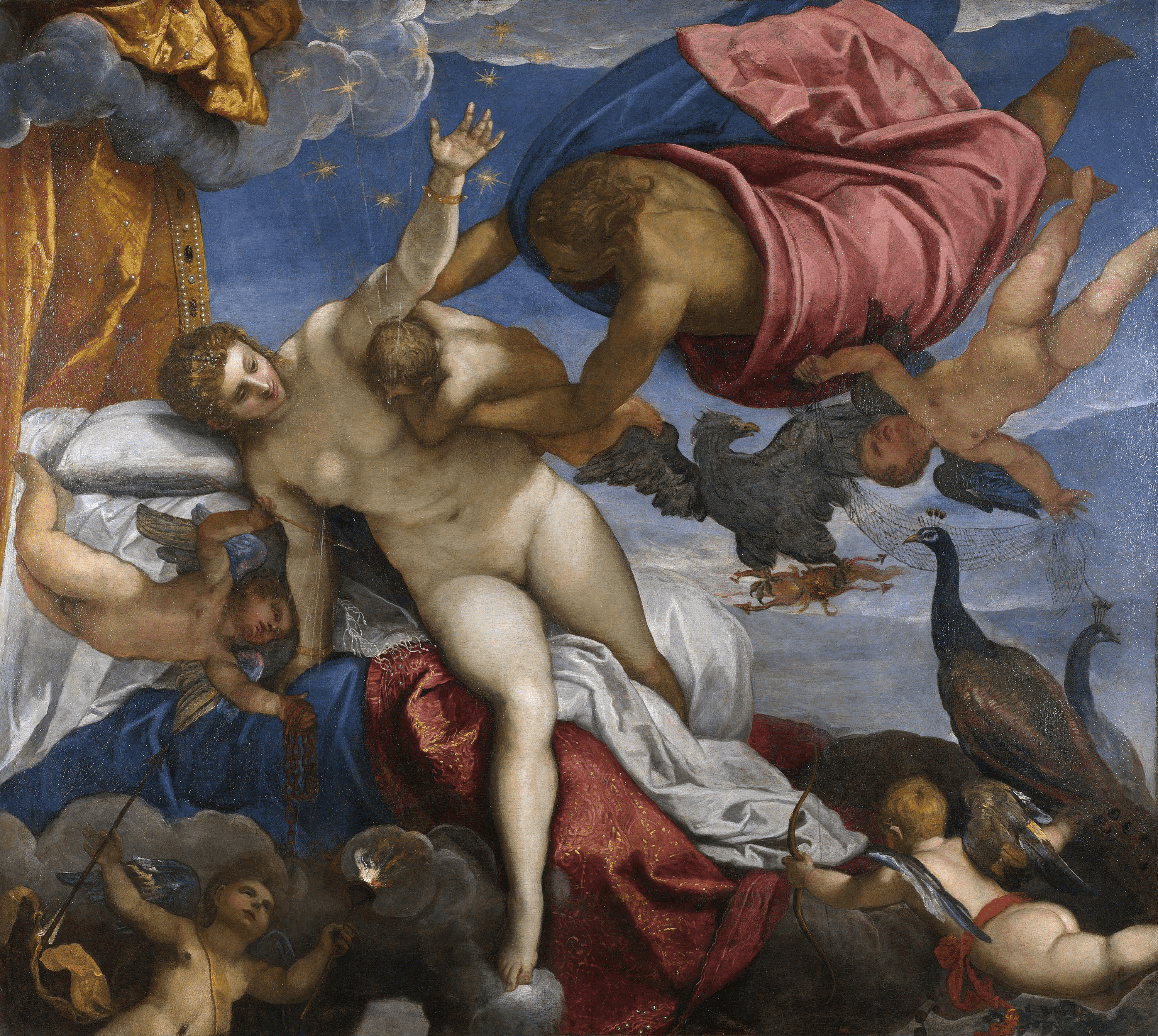Galaxy
In western culture, the name "Milky Way" is derived from its appearance as a dim un-resolved "milky" glowing band arching across the night sky. The term is a translation of the Classical Latin via lactea, in turn derived from the Hellenistic Greek γαλαξίας, short for γαλαξίας κύκλος (galaxías kýklos), meaning "milky circle." The Ancient Greek γαλαξίας (galaxias) – from root γαλακτ-, γάλα ("milk") + -ίας (forming adjectives) – is also the root of "galaxy", the name for our, and later all such, collections of stars. In Greek mythology, the Milky Way was formed after the trickster god Hermes suckled the infant Heracles at the breast of Hera, the queen of the gods, while she was asleep.When Hera awoke, she tore Heracles away from her breast and splattered her breast milk across the heavens.In another version of the story, Athena, the patron goddess of heroes, tricked Hera into suckling Heracles voluntarily, but he bit her nipple so hard that she flung him away, spraying milk everywhere.
“galaxy”这个词源于古希腊词“galaxias”(γαλαξίας),其字面意思是“乳状的”或“与牛奶有关的”。这个词是由“gala”(γάλα)派生而来的,意思是“牛奶”。是 galaxias kyklos ( milky circle ,乳汁之环)的缩写。
在希腊神话中,天后赫拉的乳汁具有神奇的力量,吃后可以长生不老。一天,趁赫拉熟睡之际,宙斯将自己和凡人女子阿尔克墨涅(Alcmene)结合所生的赫拉克勒斯抱到赫拉身旁,让他吮吸赫拉的乳汁。没想到赫拉克勒斯吮吸时用力过猛,惊醒了赫拉。赫拉猛地把孩子推开,但一些乳汁飞溅到天上形成了银河。
所以银河在希腊语中就被称为 galaxias ,进入英语后变成了 galaxy 。所以在英语中,人们还往往用 milky way (乳汁之路)来表示银河。
